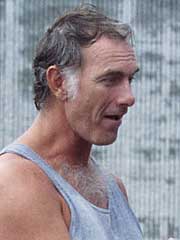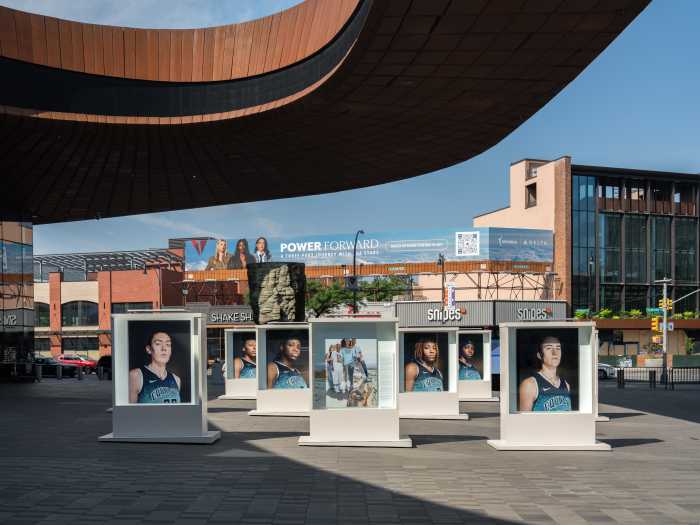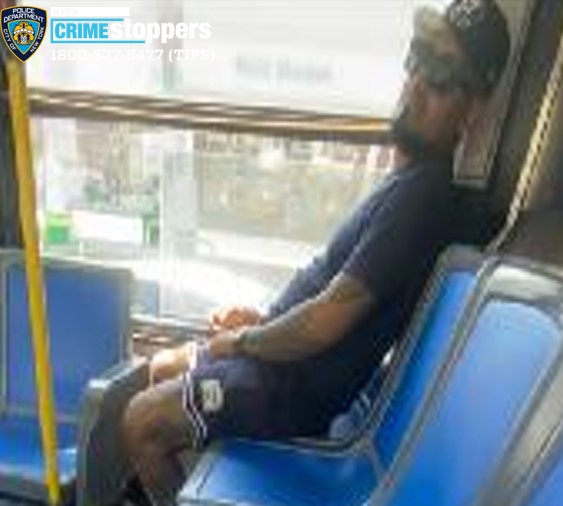When "The Return of the Secaucus Seven"
came out in 1980, its huge splash was due to far more than its
genuine merit.
Its writer-director-editor-actor, John Sayles, made the movie
for $40,000 – all the money he had saved as a result of writing
schlocky scripts like "Piranha," "The Lady in
Red" and "Alligator" for B-picture producer extraordinaire
Roger Corman – and the fact that it turned out to be a penetrating
character study of several former college friends at their reunion
was only slightly less incredible than the fact that it got made
at all.
With one film, John Sayles essentially began the American independent
film movement. But, with typical modesty, Sayles likes to downplay
his contribution, preferring to talk about the movement as a
whole.
"The good thing is that [independent filmmaking] still exists,
that it hasn’t died out," he said in an exclusive telephone
interview with GO Brooklyn from Seattle. "It certainly has
changed quite a bit. Back then, there was no Sundance Film Festival,
and there were only a handful of distributors interested in non-Hollywood
movies. We weren’t the first people to make independent movies,
but it became a true movement because of distributors and audiences,
as well as the filmmakers."
Still, there’s no denying what he’s contributed, and commemorating
that is the BAM Rose Cinemas, one of several stops for "The
John Sayles Film Restoration Project," brand-new prints
of four of his groundbreaking films, showing June 13-16. In addition
to "Secaucus Seven," screening June 13, there’s his
clear-eyed study of a married woman’s lesbian affair, "Lianna"
(1983) on June 16; his humorous allegory of race relations, "The
Brother from Another Planet" (1984) on June 15; and an historical
epic full of depth and passion, "Matewan" (1987) on
June 14, which recreated a coal miners’ strike.
Each film has been painstakingly restored, but Sayles self-effacingly
limits his own involvement in their needed restoration. "Yes,
I got involved, to the point where I looked at the prints and
said, ’darker,’ ’lighter,’ ’greener’ or ’redder,’" he says
with a chuckle.
Of course, after the films finish touring there will be the requisite
next step.
"Yes, there will be DVDs of the films, as well," says
Sayles. "And I’ll do some kind of parallel track [of audio
commentary] on each movie." The director then admits that
he’s not quite up-to-date on all of these technical advances:
"I just got a DVD player and have it hooked up, but haven’t
checked it out yet."
Still, Sayles does concede the importance of new technology like
DVD for aspiring filmmakers. "I do think that there’s a
lot of value in the Quentin Tarantino method of watching a lot
of videos [to learn about movies and directing]," he explains.
"But back when I was starting out, there wasn’t video, so
I couldn’t just rewind and fast forward and check things out
– I could only watch movies on the late show."
He continues noting the differences between then and now. "The
biggest difference is that now it’s more possible for someone
coming out of film school, or even not attending film school
– like me – to make a movie," he says. "Just this year,
the Sundance Festival had 1,000 films submitted; back then, there
were about 12 [independent features made]. It’s a huge number
of people trying to get through a door that’s as small as it
was when I first started."
But Sayles got through that door, and is now one of the few American
moviemakers who still enjoy complete creative freedom, making
the movies he wants to make. His latest, "Sunshine State,"
centers on two women in a small Florida town – Marly (Edie Falco),
looking for a way out, and Desiree (Angela Bassett), realizing
what she once ran away from is gone. The film opens June 21.
Sayles began "Sunshine State" as he starts most projects.
"Generally, I think about something for awhile, and I thought
about Florida for a long time, deciding how I felt about it,"
he recounts. "I usually have very basic things in mind when
I sit down to write. And for ’Sunshine State,’ I thought about
how Americans are so conflicted when it comes to their roots:
either compelled to stay or desperate to leave. Both of those
sides exist in our society."
Sayles has worked with many superb actors over the years – including
Mary McDonnell and Alfre Woodard in 1992’s "Passionfish"
and Mary Elizabeth Mastrantonio and David Strathairn in "Limbo"
(1999) – so he does think of certain performers for the roles
he writes.
"In this one, I started thinking about actors about a third
of the way through [writing the script], and I thought of Angela
and Edie," he says. "Angela’s actually from Florida
– she’s from St. Petersburg – and I’d seen Edie in ’The Sopranos’
and a couple of movies, and there’s always an inner strength
to her characters, which this character needed.
"What I do is cast very good actors, then see what they’re
going to do. As a director, you don’t teach people how to act,
you just direct their talent."
After two decades making superior, intelligent movies for adults,
John Sayles remains as modest as ever.
"The John Sayles Film Restoration
Project" will be screened at BAMcinematek [30 Lafayette
Ave. at Ashland Place, (718) 636-4100] June 13-16. Tickets are
$9, $6 seniors and students with valid ID. For a complete schedule
of screening times, visit www.bam.org. Sayles will attend a Q
& A following the 7:30 pm screening of "Matewan"
on June 14.
"Sunshine State" opens in theaters June 21.

























